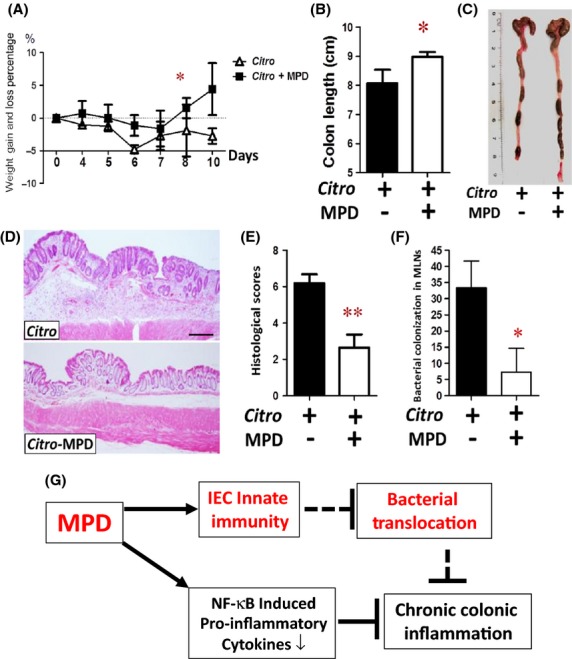Figure 7.

MPD treatment reduced the disease severity of C. rodentium-induced colitis. Eight-week-old C57BL/6 mice were orally inoculated with C. rodentium. Percentage of weight gain or loss was determined at the indicated time points (A), colon length (B) and number of stool pellets (C) were measured. (D) HE staining shows that MPD treatment reduced mucosal hyperplasia, diminished focal ulceration and transmural inflammation in the C. rodentium-treated C57BL/6 mice. (E) Combined colonic histological scores were determined in the MPD-treated colitic mice. (F) C. rodentium colonization in the MLNs was determined after 7-day MPD treatment. Results are expressed as colony-forming unit (CFU). Results are expressed as the mean ± SEM, n = 6, *P < 0.05, **P < 0.01 versus controls without C. rodentium infection. (G) Overview of MPD action mechanisms. On the one hand, MPD stimulates epithelial innate immunity; on the other hand, MPD inhibits the exaggerated mucosal adaptive immunity.
